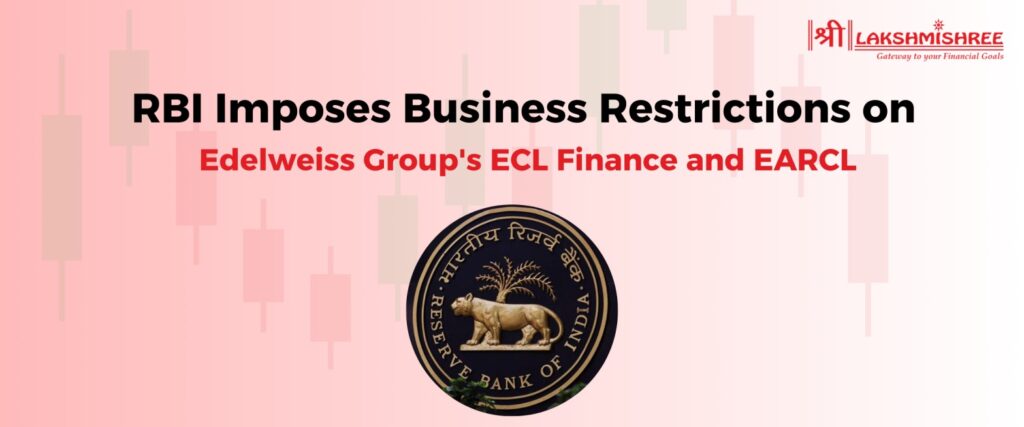
The Reserve Bank of India (RBI) has imposed significant business restrictions on ECL Finance and Edelweiss Asset Reconstruction Company Limited (EARCL), both part of the Edelweiss Group, citing "material supervisory concerns." These concerns are primarily related to governance and compliance issues that the RBI uncovered during its recent supervisory assessments.
The restrictions prohibit these entities from acquiring new financial assets and engaging in any new business activities until further notice. This action is part of the RBI's broader effort to ensure financial institutions adhere to stringent regulatory standards and maintain robust operational controls.
The RBI's supervisory assessments revealed significant lapses in the internal controls and compliance mechanisms at ECL Finance and EARCL. According to sources, these deficiencies include issues related to asset classification, provisioning, and overall governance practices. The central bank's intervention aims to prompt the Edelweiss Group to rectify these issues promptly and strengthen its internal systems.
In response to the RBI's directives, Edelweiss Group, led by its Chairman Rashesh Shah, has expressed its commitment to fully cooperate with the regulator. The group has acknowledged the regulatory concerns and assured it will undertake all necessary steps to enhance its governance framework and compliance processes. Rashesh Shah emphasized that the company is dedicated to resolving these issues swiftly to restore confidence and ensure long-term stability.
The restrictions come at a crucial time for Edelweiss, which has been actively expanding its financial services portfolio. Recently, the group entered into strategic partnerships for co-lending initiatives aimed at democratizing access to credit, particularly in the priority sectors. These initiatives are now being scrutinised as the group navigates the RBI's imposed limitations.
Despite the current challenges, Edelweiss continues to focus on maintaining service quality and fulfilling its commitments to existing clients. The group is working on enhancing its internal audit and risk management practices to meet the regulatory requirements set forth by the RBI.
The RBI's stringent measures serve as a reminder of the importance of robust regulatory compliance and governance in the financial sector. For Edelweiss, this period will be critical in addressing the identified gaps and ensuring that it emerges stronger and more resilient.
Industry analysts suggest that while the restrictions may temporarily impact Edelweiss's growth plans, the group's proactive approach to resolving these issues could lead to a more solid foundation for future operations. The financial community will be closely watching how Edelweiss implements the necessary changes and navigates through this regulatory challenge.
